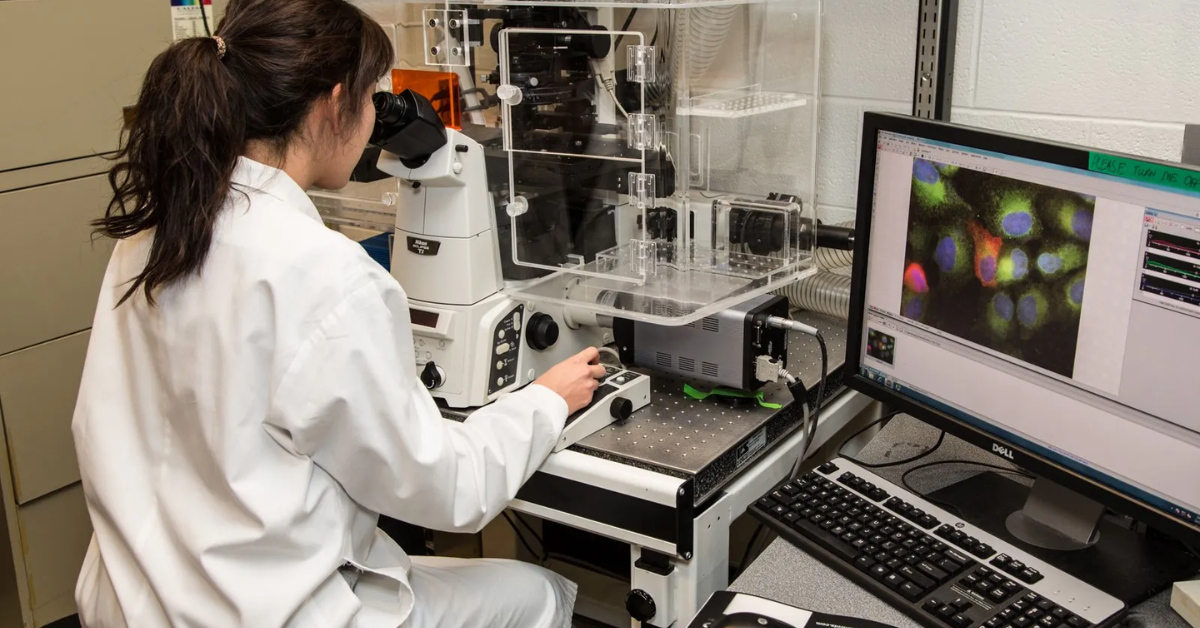Genetic disorders can pose significant challenges, impacting individuals and their families in profound ways. Fortunately, advancements in medical science have paved the way for early detection and intervention through biochemistry tests. In Patiala, these tests play a crucial role in screening for genetic conditions, offering valuable insights into an individual’s risk and facilitating informed decision-making. At Rapid Laboratory, we specialize in providing comprehensive biochemistry tests in Patiala, empowering patients with knowledge and enabling proactive management of genetic disorders.
What is a biochemical test for genetic disease?
Biochemistry tests are diagnostic procedures that assess various biochemical markers in the body, providing valuable information about metabolic processes, enzyme activity, and molecular pathways. When it comes to screening for genetic disorder test, biochemistry tests can detect abnormalities in specific molecules or metabolic pathways associated with genetic conditions. These tests help identify individuals who may carry genetic mutations or are at risk of developing inherited diseases, allowing for early intervention and preventive measures.
The Importance of Biochemical Testing in Genetic Disease Screening
Biochemical testing for genetic disorder test encompasses a wide range of laboratory tests designed to detect abnormalities in proteins, enzymes, hormones, and other biochemical substances. Some of the most common biochemical tests used for screening genetic conditions include:
- Amino Acid Analysis: This test measures the levels of amino acids in the blood or urine, helping diagnose metabolic disorders such as phenylketonuria (PKU) or maple syrup urine disease (MSUD).
- Enzyme Assays: Enzyme assays assess the activity of specific enzymes in the body, identifying deficiencies associated with genetic disorders such as Gaucher disease, Tay-Sachs disease, or lysosomal storage disorders.
- Chromatography: Chromatographic techniques, such as high-performance liquid chromatography (HPLC) or gas chromatography-mass spectrometry (GC-MS), are used to analyze metabolites and identify abnormalities indicative of metabolic disorders.
- Hormone Levels: Measurement of hormone levels in blood or urine can reveal imbalances associated with genetic conditions such as congenital adrenal hyperplasia or thyroid disorders.
What are the 4 biochemical tests?
In addition to biochemistry tests, there are several other types of laboratory tests used for screening genetic conditions:
- Genetic Testing: Genetic testing involves analyzing an individual’s DNA to identify genetic mutations or variations associated with specific diseases or conditions.
- Carrier Screening: Carrier screening tests are performed to determine whether individuals carry genetic mutations that could be passed on to their offspring, increasing the risk of inherited disorders.
- Prenatal Testing: Prenatal screening tests, such as amniocentesis or chorionic villus sampling (CVS), are performed during pregnancy to assess the risk of chromosomal abnormalities or genetic disorders in the fetus.
- Newborn Screening: Newborn screening involves testing newborns shortly after birth to detect genetic disorders that may not be apparent at birth but could cause serious health problems if left untreated.
How much does genetic carrier screening cost?
The cost of genetic carrier screening can vary depending on the type of test, the laboratory performing the analysis, and whether insurance coverage is available. On average, genetic carrier screening tests can range from a few hundred to a few thousand rupees. However, many laboratories and healthcare providers offer affordable options and financial assistance programs to make genetic testing more accessible to patients.
Advancements in Genetic Testing
With advancements in technology and research, genetic testing has become increasingly sophisticated, allowing for more accurate and comprehensive analysis of an individual’s genetic makeup. Next-generation sequencing (NGS) technologies, for example, enable simultaneous analysis of multiple genes, offering a more comprehensive assessment of genetic risk factors. Additionally, the emergence of direct-to-consumer genetic testing kits has made genetic screening more accessible to the general public, empowering individuals to take proactive steps towards understanding their genetic predispositions and making informed healthcare decisions.
Benefits of Early Detection
Early detection of genetic disorder test through biochemistry and genetic screening can have profound implications for patients and their families. By identifying individuals at risk of developing inherited conditions or passing on genetic mutations to their offspring, early intervention strategies can be implemented to mitigate the impact of these disorders. This may include lifestyle modifications, medical interventions, or reproductive options such as preimplantation genetic diagnosis (PGD) or prenatal testing. Ultimately, early detection and intervention can improve patient outcomes, enhance quality of life, and reduce the burden of genetic diseases on individuals and healthcare systems.
Challenges and Considerations
Despite the benefits of genetic screening, there are several challenges and considerations to be mindful of. Genetic testing may uncover unexpected or uncertain results, raising ethical, psychological, and social implications for individuals and their families. Additionally, there may be limitations to the accuracy and reliability of genetic tests, particularly when interpreting variants of uncertain significance or assessing complex genetic interactions. Healthcare providers need to provide comprehensive counseling and support to patients undergoing genetic testing, helping them navigate the implications of their results and make informed decisions about their healthcare and future.
Future Directions in Genetic Testing in Biochemistry Tests in Patiala
Looking ahead, the field of genetic testing continues to evolve rapidly, with ongoing advancements in technology, research, and clinical practice. From precision medicine initiatives to the integration of artificial intelligence and machine learning algorithms in genetic analysis, the future holds promise for more personalized and targeted approaches to healthcare. By harnessing the power of genetics, biochemistry tests, and innovative technologies, we can unlock new insights into the prevention, diagnosis, and treatment of genetic disorders, ultimately improving health outcomes and transforming the landscape of medicine.
At Rapid Laboratory, we are committed to providing comprehensive biochemistry tests in Patiala, including screening for genetic disorders. Our experienced team of medical professionals utilizes state-of-the-art technology and adheres to strict quality standards to deliver accurate and reliable results. If you have concerns about genetic conditions or are interested in undergoing genetic screening, contact us today to schedule a consultation. Trust us to be your partner in promoting health and well-being through advanced biochemistry testing.



